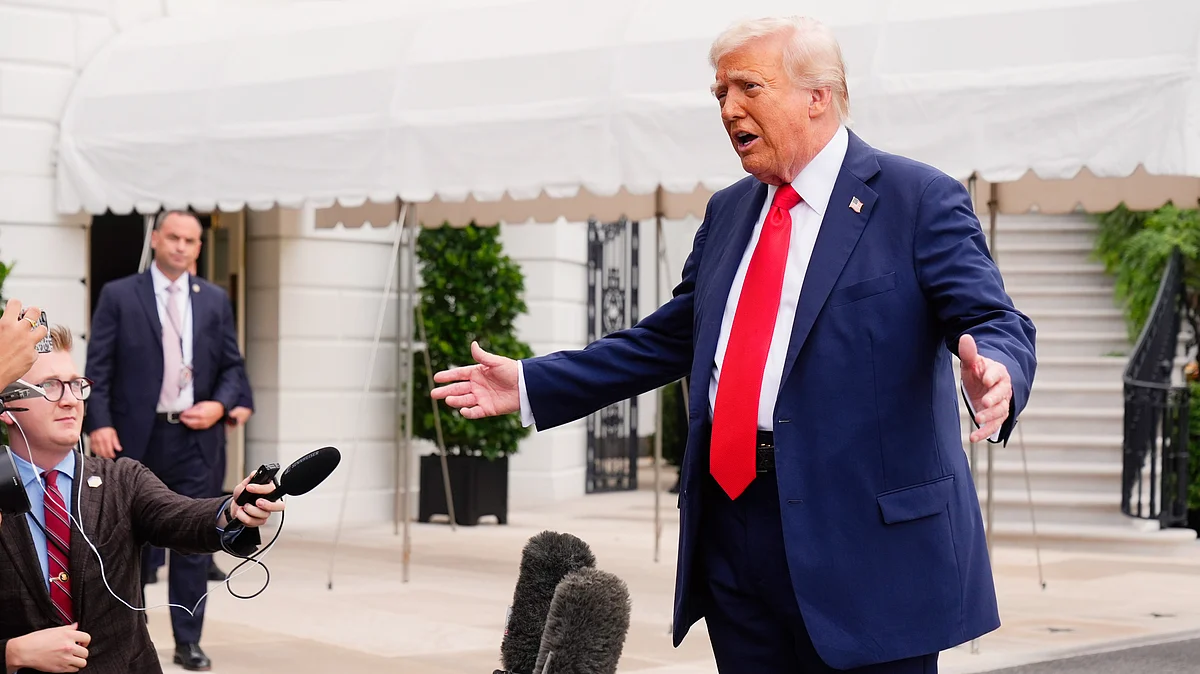Tech firms hit out at Trump's new visa rules, industry majors stay silent
Critics say the move threatens innovation and undermines a sector that has been a major contributor to Trump's re-election campaign

US President Donald Trump’s decision to impose steep new visa fees for foreign workers has drawn near-universal criticism from technology executives, entrepreneurs, and investors, who say the move threatens innovation and undermines a sector that has been a major contributor to his re-election campaign, as per a Reuters report.
The proposed measure — unveiled through a series of confusing announcements late on Friday, 19 September — would require companies to pay $100,000 per H-1B visa, a programme widely used by technology giants such as Amazon, Microsoft, and Meta Platforms to recruit highly skilled workers, mostly from India (about 69 per cent) and China (about 14 per cent).
Industry leaders argue the policy will add millions in extra costs for firms and fall hardest on startups, which rely on global talent but lack the deep pockets of established corporations. “America’s edge has always been that we attract smart, ambitious people from everywhere,” said Esther Crawford, a former Twitter (X) executive now working at Meta, as per the Reuters report. “High-skilled immigrants don’t take from us, they build with us. Some of the best colleagues in my career have been H-1B holders chasing their own American dream.”
The White House initially offered few details, prompting chaos among companies and workers. Executives scrambled to determine whether the hefty fee would apply annually or retroactively, and some foreign employees even cut travel short to avoid complications. By Saturday, officials clarified that the $100,000 charge would be a one-time fee for new visas only, with no impact on current holders, even if they were abroad when the announcement came.
Nevertheless, the rollout left many unnerved. “My heart goes out to all the families and individuals anxious over their futures following the abrupt and chaotic announcement of H-1B visa changes,” wrote Andrew Ng, founder of DeepLearningAI, on LinkedIn. “America should be working to attract more skilled talent, not create uncertainty that turns them away.”
Neither Meta, Microsoft, nor Amazon immediately responded to requests for comment by Reuters. Most executives at these firms — many of whom have cultivated close ties with Trump since his return to office — have so far avoided public statements. A few, however, have broken ranks.
David Seidman, head of platform security at fintech firm Plaid, predicted bluntly on LinkedIn that “at least one” of the major tech companies would shift hiring abroad, opting to expand operations in India or Canada rather than shoulder the new costs.
The plan is not without backers. Gary Cohn, IBM’s vice-chairman and former head of Trump’s National Economic Council, told CBS News the fees were a “good idea” that would help prioritise “employees with high-value skillsets”. Reed Hastings, chairman of Netflix, echoed that view on X, arguing that higher costs would ensure visas are used only for “very high value jobs” and provide stability for those who already hold them.
Economists warn the policy could exacerbate strains in the US labour market. Analysts at Berenberg said while advances in artificial intelligence may fill some staffing gaps, the visa hike would create additional pressure on companies already navigating the fallout of Trump-era trade disputes.
“By making it very expensive for companies to attract foreign talent, and by forcing some international students to leave the country after graduation, the brain drain will weigh heavily on productivity,” the bank’s economists wrote.
The move fits into Trump’s wider immigration agenda, which has featured heightened border security, large-scale raids, and enforcement actions targeting lower-skilled undocumented workers. Most recently, US Immigration and Customs Enforcement raided a Georgia battery plant owned by South Korea’s Hyundai Motor, prompting anger in Seoul and raising fresh questions about US reliability as a partner.
For now, the visa fee proposal remains in its early stages, but the industry reaction has been swift and overwhelmingly negative. Critics say the plan jeopardises the United States’ long-standing advantage as a magnet for global talent, while supporters argue it will refine the system by limiting visas to only the most valuable roles.
The clash highlights a deep divide: between those who see immigration as central to America’s technological edge and those who want to restrict it in hopes of protecting domestic workers. As the debate intensifies, the world’s biggest technology companies may face a choice — absorb the new costs or accelerate their global expansion beyond US borders, as the Reuters report states.
With agency inputs
Follow us on: Facebook, Twitter, Google News, Instagram
Join our official telegram channel (@nationalherald) and stay updated with the latest headlines
